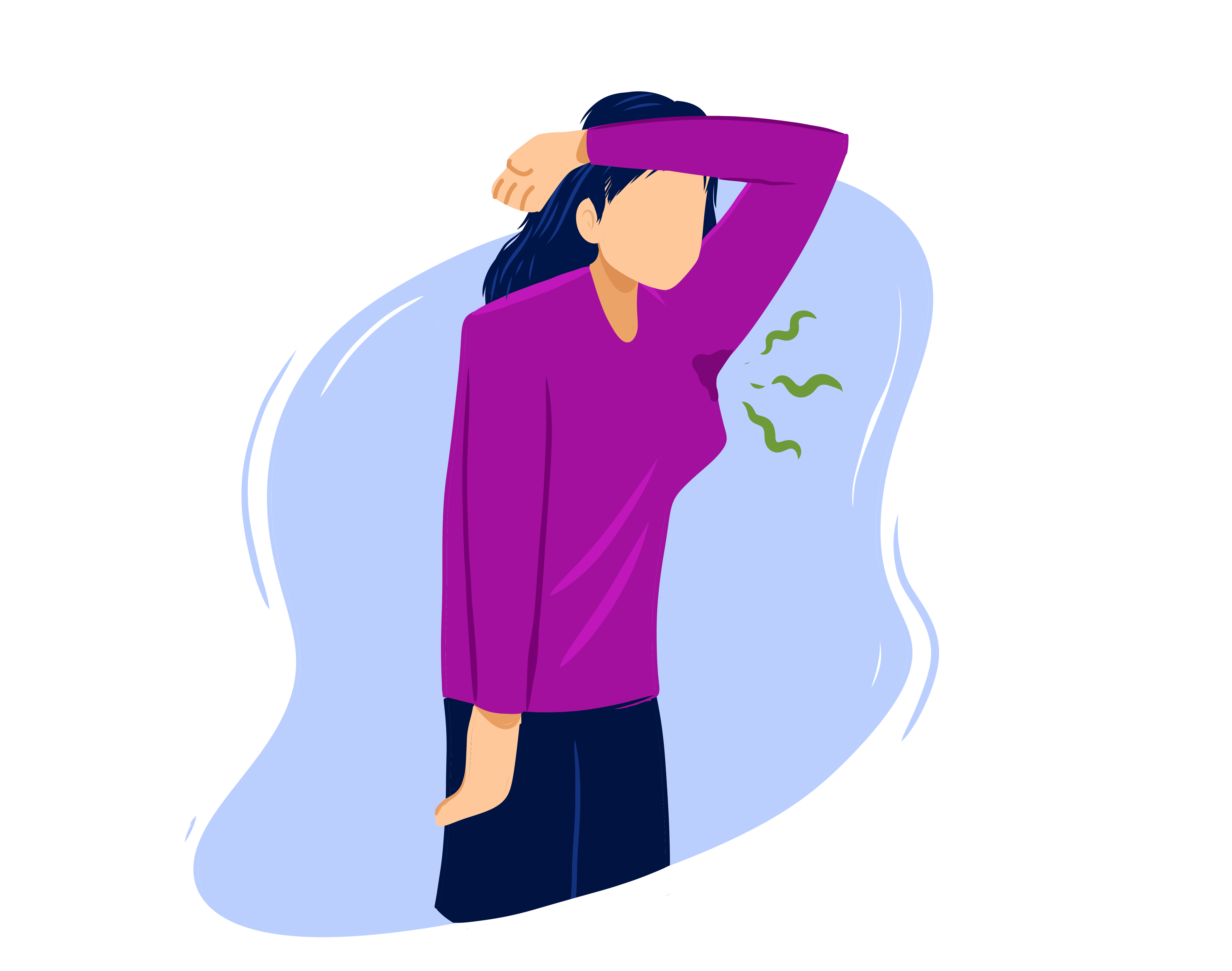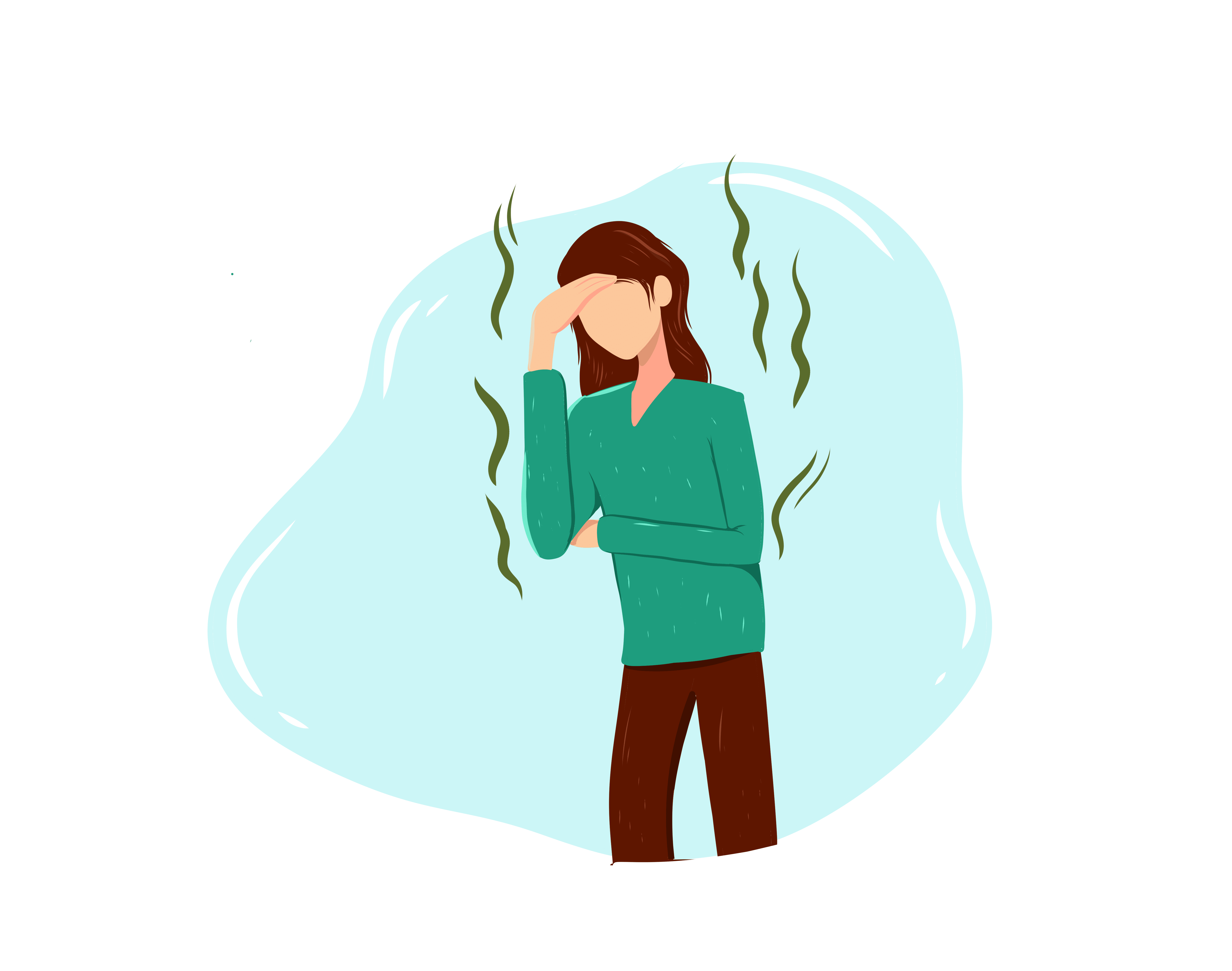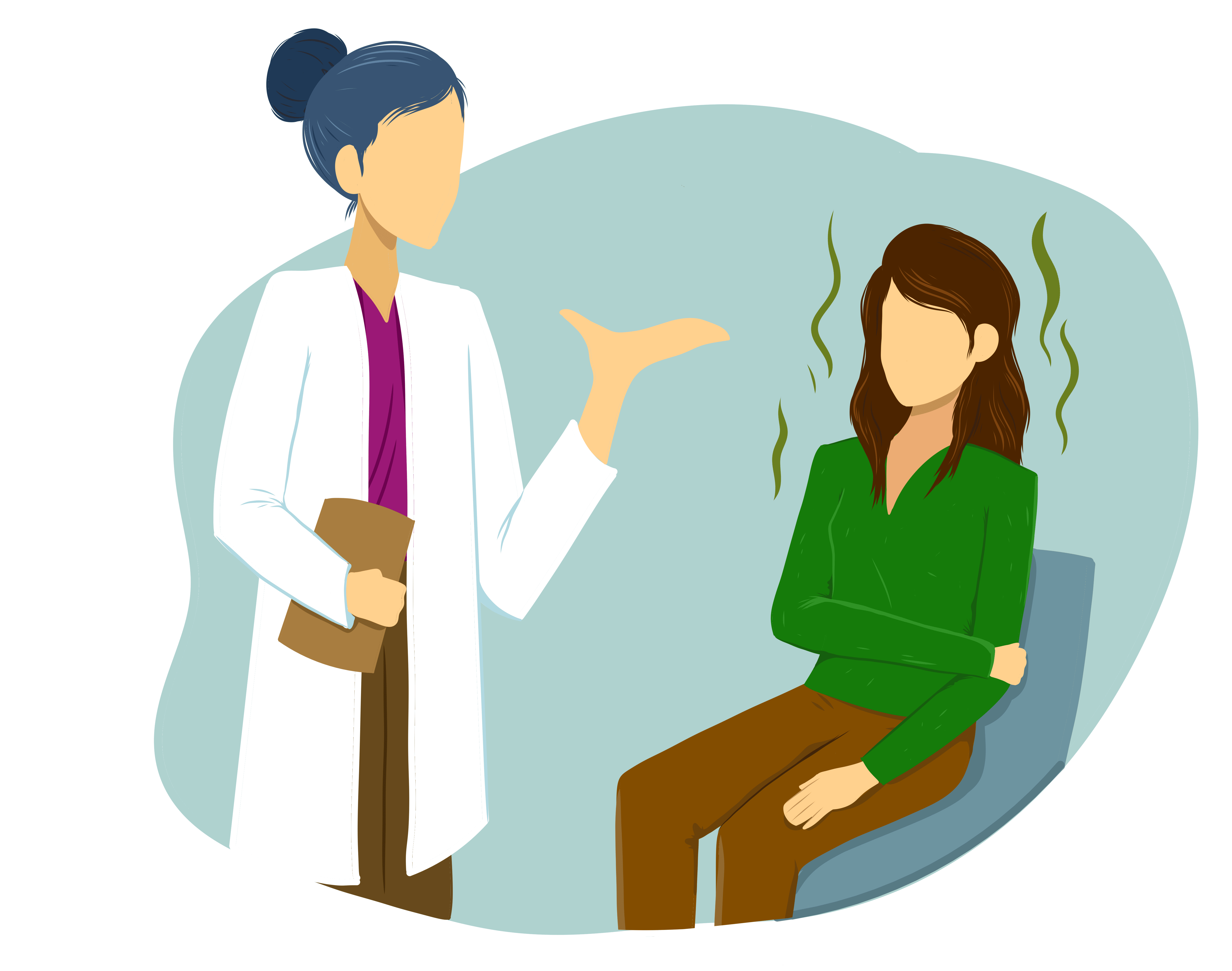Treatment for Menopausal Body Odour
While menopausal body odour can seem daunting, it’s important to remember that there are viable solutions to manage it. There’s a whole range of therapies, treatments, and natural remedies at your disposal.
In this section, we’ll walk through some effective strategies, from medical interventions like Hormone Replacement Therapy (HRT) to lifestyle modifications and natural remedies. Let’s explore these options to help you navigate this transition more comfortably.
As a front-line approach, Hormone Replacement Therapy can effectively help manage the hormonal imbalance during menopause, often reducing associated symptoms like excessive sweating and body odour. By replacing the diminishing oestrogen, HRT can help regulate the body’s sweat and sebum production, thereby addressing the changes in body odour.
Are you wondering if Hormone Replacement Therapy (HRT) could be your answer? Why not chat with us at the Online Menopause Centre – our friendly doctors and nurses are always ready to help. They can guide you through your choices and what comes next. We’re all about making this journey easier for you.
Prescription Antiperspirants
For those experiencing excessive sweating, prescription antiperspirants can be a practical solution. These contain higher concentrations of active ingredients compared to over-the-counter options, and can be applied to various parts of the body to control excessive sweat and associated odour.
Antibacterial Skin Cleansers
Utilising antibacterial skin cleansers can help reduce the number of odour-causing bacteria on your skin. These cleansers are specifically designed to fight the bacteria that break down sweat and cause body odour, offering an added layer of protection.
Botox Injections
While not a first-choice solution for many, Botox injections can be a consideration for extreme cases. By blocking the nerves that trigger your sweat glands, Botox can reduce excessive sweating and the resulting body odour.
Natural Remedies:
What we eat can impact our body odour. Consuming a balanced diet rich in fruits, vegetables, and whole grains, while reducing intake of spicy foods, caffeine, and alcohol can help manage body odour.
While it may seem counterintuitive, regular exercise can help regulate your body’s temperature and reduce excessive sweating and body odour over time. Plus, it’s a great stress-reliever.
Regular bathing, especially after exercise, helps remove the sweat and bacteria on your skin. Using antibacterial soap and wearing breathable fabrics can also assist in managing body odour.
Certain supplements, like sage and black cohosh, have been claimed to help reduce menopausal symptoms, including excessive sweating and body odour. However, it’s essential to consult with a healthcare provider before starting any supplement regimen.
Anything that will help you reduce your perspiration will undoubtedly help you get rid of body odour. For instance, serotonin-norepinephrine reuptake inhibitors (SNRIs), like venlafaxine, and selective serotonin reup-take inhibitors (SSRIs), like fluoxetine, boost serotonin in the synaptic gaps and relieve hot flashes.
Remember, it’s important to consult with a healthcare professional to understand the best approach for your individual needs and circumstances. It’s a team effort, and together, you can effectively manage menopause symptoms, including body odour.






